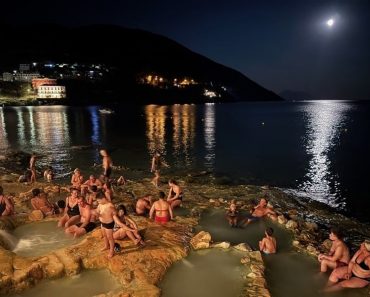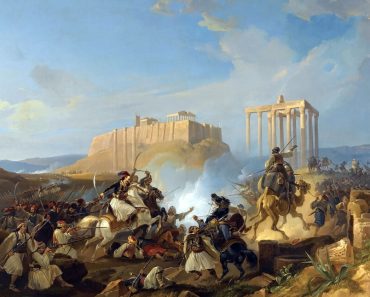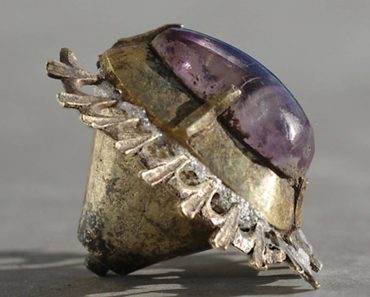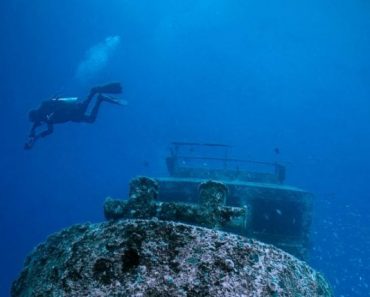On a sunny morning in May, a quiet residential neighborhood in Athens served as the classroom for eight undergraduates, all rising sophomores from the University’s first-generation and lower-income community. Guided by Princeton lecturer Soo-Young Kim and Greek historian Kostis Karpozilos, students peeled back layer upon layer of history in the cityscape of Kaisariani, learning to read the contemporary Greek buildings like books.
Their conversation continued in a seminar room at the Princeton Athens Center, which provides research and learning opportunities for University scholars and students. The day was part of “Made in Greece,” a new summer program developed by the Stanley J. Seeger ’52 Center for Hellenic Studies with support from the Emma Bloomberg Center for Access and Opportunity (EBCAO).
The 10-day, noncredit seminar is a fully funded immersion course in modern Greek history, art and contemporary culture. For many of the students, the summer course was their first international academic experience.
Pre-med student Shadan Al Zuhairi, Class of 2028, said she was grateful for the program’s effort to broaden access to such transformative opportunities.
The seminar inspired Al Zuhairi to engage more deeply with Hellenic studies. She hopes to take the fall course “Hellenism: The First 3,000 Years” taught by Kim, and said her goal is to return to Athens for another Seeger Center program.
Dimitri Gondicas, director of the Seeger Center, said the summer seminar “encapsulates the mission and spirit of the Seeger Center, namely, to provide unique learning and experiential opportunities for Princeton students to pursue on-site study of the Hellenic world and its impact over three millennia.”
Reflecting the Seeger Center’s interdisciplinary approach to the study of the Greek world from antiquity to today, “Made in Greece” incorporated a range of disciplines, connecting Princetonians with Athens-based historians, curators, artists, students and alumni.
“We make it possible for our students to delve into cultural dialogues with students and scholars at Greek institutions, to engage with enduring questions about the human condition, and thus to reflect on their own values and aspirations,” Gondicas said.
Khristina Gonzalez, the Bob Peck ’88 Director of the Emma Bloomberg Center for Access and Opportunity, said the Greece trip exposed first-generation, lower-income (FLI) students to studying abroad — something she hopes they will continue to take advantage of through Princeton’s many international learning opportunities.
“One of EBCAO’s core goals is to ensure that all students have the opportunity to engage in the full range of educational experiences that Princeton has to offer, which includes global learning,” Gonzalez said. “The ‘Made in Greece’ trip was the first time that some of our students had the chance to study internationally; it quite literally showed them a new part of the world.”
Al Zuhairi praised the seminar’s experiential focus for fostering “exploration for the sake of curiosity, not credentials,” adding, “As a first-generation low-income student, that kind of freedom is rare.”
Given that Greece is often associated with its classical past, Kim said one goal of the summer program was to provide on-the-ground opportunities for learning about both Greek history and contemporary life, and for in-depth explorations of how the past and the present intertwine.
Kim, a lecturer in the Writing Program, and Fanis Kafantaris, an Athens-based architect, led the course’s first walking tour, “Constructing Modern Athens.” The tour highlighted the decision by urban planners to ensure numerous unobstructed views of the Acropolis.
The next day, the class visited the Acropolis, viewing ancient artifacts and contemporary art in the Acropolis Museum. Kim encouraged the students to consider why the Acropolis is so well known, which, she noted, “primed their minds to be curious about other aspects of the city’s history.”
Karpozilos, a 2014-15 Seeger Center postdoctoral fellow who now teaches at Panteion University in Athens, said that the Princeton cohort truly embraced immersive learning. “We had a genuine dialogue where the students actively connected dots between places, histories and contemporary experiences.”
Anthony Pleitez-Rivas, Class of 2028, had not studied abroad before participating in “Made in Greece.” In Athens, he discovered a passion for migration studies, international academic travel and experiential learning, which he plans to continue pursuing at Princeton.
“My love for academics, learning and knowledge-seeking was reignited,” said Pleitez-Rivas. “I feel a lot more inclined to explore beyond the boundaries that I had in mind.”
Other summer sessions focused on Greek art and local food traditions. Grace Monk, a doctoral candidate in comparative literature who is pursuing the Seeger Center’s graduate certificate in Hellenic studies, traveled with the group to support their learning. Athens-based experts Nicos Nicolaides, a historian, and Ilirida Musaraj, a sociologist, led the cohort on walking tours and a day trip to Aegina, a Saronic island about 20 miles from Athens.
“Despite only spending a short amount of time in the city, this program offered a deep and lasting experience,” Al Zuhairi said. “Our group of students and mentors built connections with each other, local leaders, and the city itself. As I explore new cultures and spaces, I find myself using the model we set during this program of interacting with local community members and immersing myself within new cultures.”

A visit to the Acropolis Museum included a viewing of the exhibition “Allspice: Michael Rakowitz & Ancient Cultures.”







